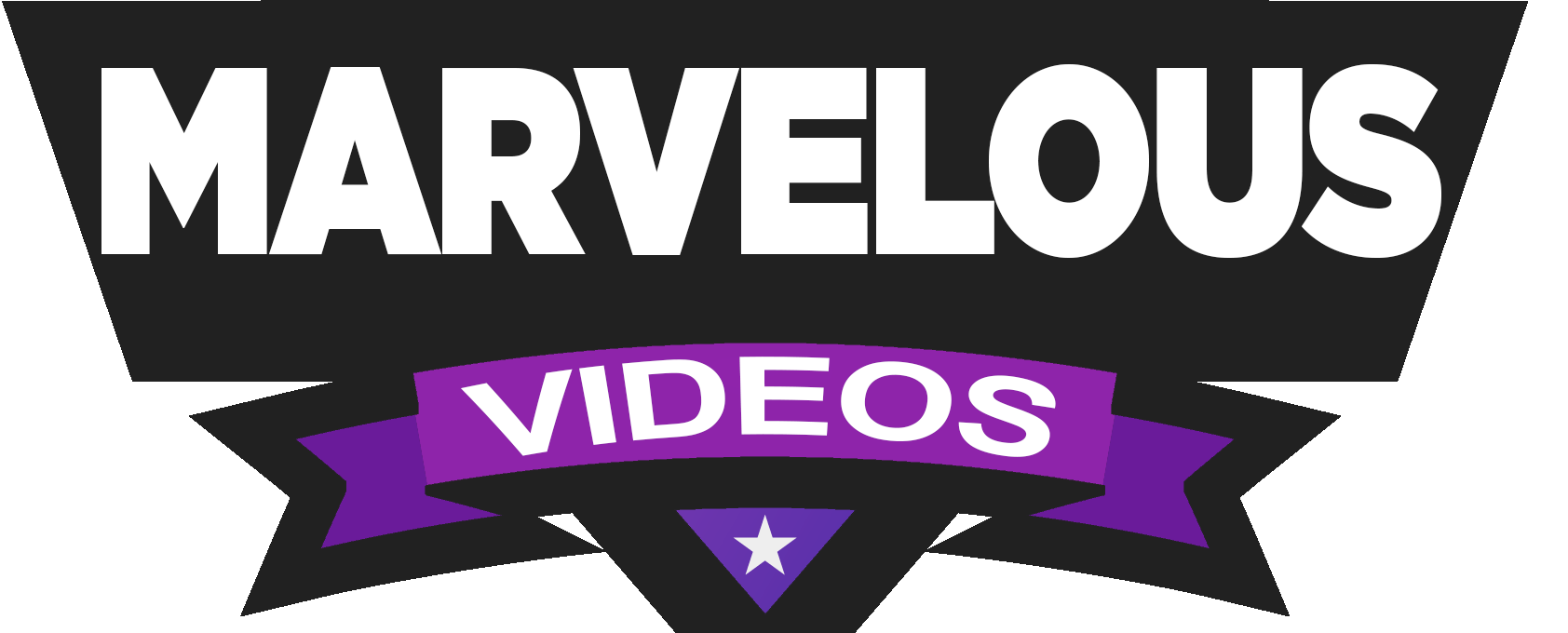According to how lawyers are typically portrayed on television, they are suave, educated people who have a lot of vices and dark secrets, but their inherent charm, never-say-die attitude, and fleeting moments of redemption keep us fascinated in them for as many as nine seasons.
But since we are talking about Better Call Saul, it stands to reason that the most brilliant legal mind the programme ultimately features is also one that is so frightfully frail that you wonder if “crazy geniuses” are actually beneficial to society after all.
Nobody could have predicted at the beginning of the series that Jimmy McGill’s housebound brother would ultimately turn out to be the reason he transforms into Saul Goodman, but as Season 6 nears its conclusion, it has only become more and more obvious that Charles McGill is just as accountable for the creation of Saul Goodman as his brother is.
How can Chuck get Jimmy to join Breaking Bad, though? Why does he treat his own flesh and blood in such a manner? And did his character draw any inspiration from real-life events? Chuck McGill’s beginnings are examined in this film, so stick with us until the very end to find out what happens.
He is your typical “tortured genius”; until he isn’t – Chuck McGill’s introduction to Better Call Saul
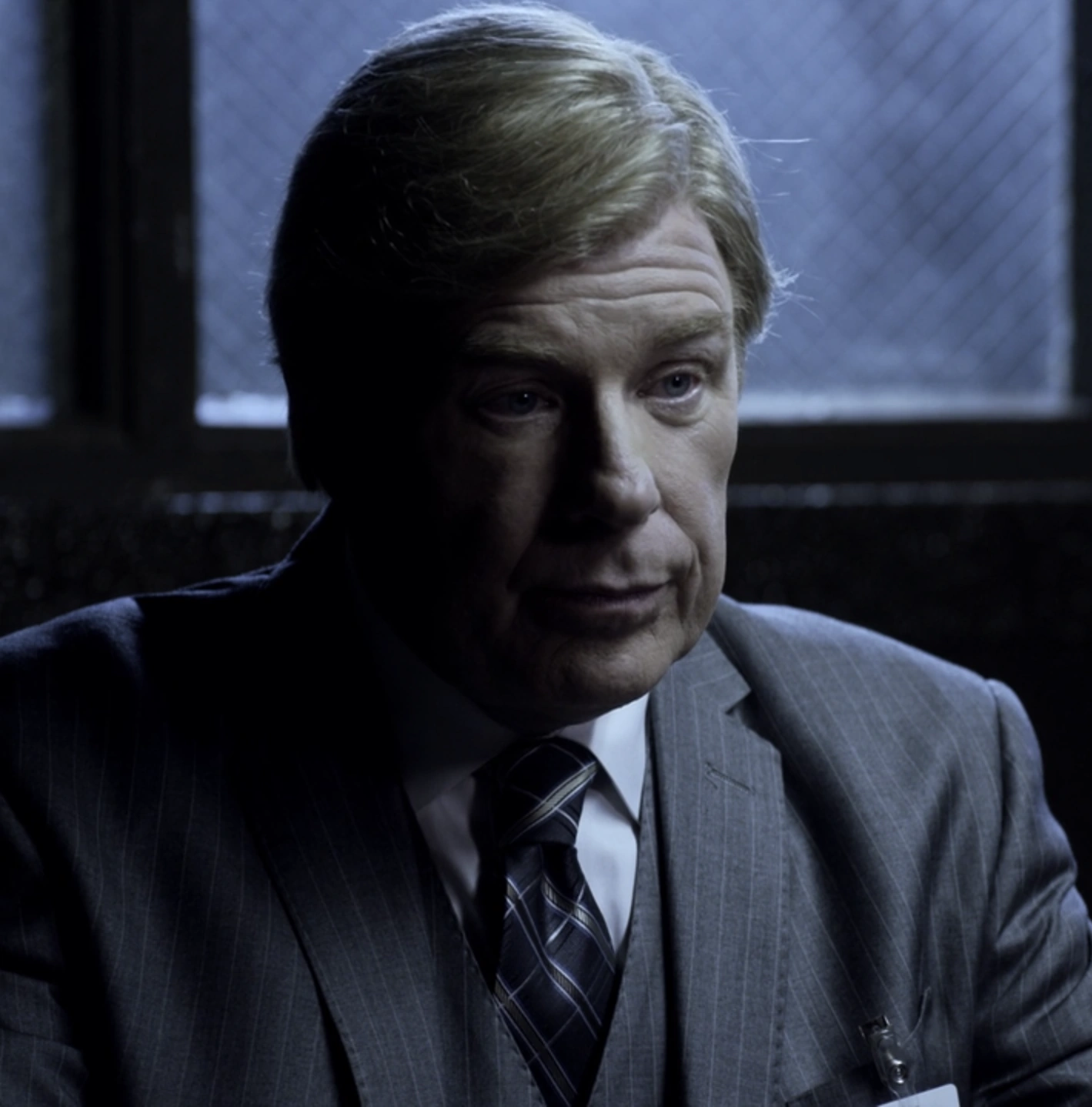
When we first met Chuck, we were shocked that the person we knew as Saul Goodman would be ready to go to such lengths to assist others; in part because it is Saul, of course, but also because we had no idea he had a brother. The only mention of Jimmy’s “previous life” in Breaking Bad is a casual remark made when he first meets Walter, in which we discover that his real name is “McGill.”
So it comes as a surprise when we first meet Chuck that Jimmy is not only caring for someone selflessly but also always following their rules— something we know Saul Goodman is simply opposed to doing. Seriously, the guy who basically pushed Junior to drink and drive is worried that the decaying bacon in someone is cooler is making it resemble a trichinosis stew.
Can you guys already tell that before, things were different? Speaking of the cooler, this is the perfect opportunity to talk about one of Jimmy’s primary nanny-like responsibilities: his brother has Electromagnetic Hypersensitivity. Due to a reaction that can only be described as allergic, EHS is a condition that reportedly makes one incapable of being in the presence of intense electromagnetic fields.
Chuck wants to utilise gas lamps to illuminate his home rather than any electrical appliances because his sickness requires him to do so. He even has a complex “entrance ritual” in which he requires visitors to ground themselves and put their electronic devices in the mailbox before entering his house.
Jimmy’s compassion for Chuck is evident right away; if his actions of obtaining various newspapers from various newsstands and removing ice from motels for his elderly, crippled brother were not enough to indicate this, Jimmy’s visit to HHM in Uno should have done so.
When he did not get his way, he kicked a trash can out of commission. He fought Chuck’s name partner for his fair portion of the money. At this point, Howard Hamlin appears like the biggest corporate jerk in the world and Chuck seems to be aloof to all of the things that he is doing behind his back at HHM.
When Jimmy comes back home to tell him he should buy out his share from HHM because it’s hard for him to make enough money for the both of them on a public defender’s fee, Chuck calmly tells his brother that Howard has commissioned a new weekly stipend for him, alleviating his financial woes. And oh, while Jimmy is at it, he should also change his practicing name because Howard thinks it would essentially tarnish HHM’s reputation if Jimmy were to keep working under the name McGill.
Jimmy is understandably pissed at Howard and it looks like Chuck, who is enjoying post-retirement crossword solving, is afraid to piss off the guy who basically holds his legacy in his hands. Well, technically Chuck is on an “extended sabbatical”, and the payments were Howard’s way of keeping him in HHM, but Jimmy repeatedly claims that his brother is done with being a lawyer.
He clearly thinks that his brother should just cash in his reputation and retire in peace, but it would soon become clear that none of Jimmy’s concerns would ever have a positive effect on anything. Because when Jimmy rolls up to the only place he can feel safe after drinking himself silly following the stunts Tuco pulled with the skateboarding twins, Chuck immediately casts suspicions on his actions, having found his cell phone in his pocket and a medical bill for 2 broken legs. We don’t immediately realise why Chuck cares so much about Jimmy’s whereabouts, but when he wakes up and realises Chuck has seen the bill, Jimmy panics and swears to Chuck that he isn’t slipping back into old habits.
And we find out in Season 1 episode 3 exactly why his old habits are relevant to Chuck. In a flashback from 1992, we see that Jimmy, who was still known as “Slippin’ Jimmy” at this point, managed to get himself into a legal problem that could have him potentially registered as a sex offender. Google what a Chicago sunroof is at your own peril. Realising the trouble his con-man antics had gotten him into, he called his mom and got her to convince his big-shot lawyer brother to bail him out.
When Chuck arrived at the prison facility, Jimmy switched on the same mode that we would see him live and breathe as Saul Goodman in Breaking Bad; but his brother cut the crap right down the middle and told Jimmy if he wanted to prevent being labelled as a sex offender, he would have to play by Chuck’s rules. That means he gives up his life of crime in Cicero- their hometown- moves to Albuquerque with Chuck and gets a job in the mail room of his law firm Hamlin, Hamlin & McGill. Jimmy agrees and moves to ABQ with his elder brother and spends the next 10 years making an honest man out of himself.
At the start of Better Call Saul, it’s clear that he is struggling with remaining honest- the scam he tried to pull on the Kettlemans makes it evident enough- but he is doing his best. When Jimmy comes across the Sandpiper case, he is elated to the point he brings it home for Chuck to go through, and it actually feels like the two brothers are working together for a couple of episodes.
Jimmy tries to rekindle Chuck’s love for the law in the hope that it will get him to step out of the house for a change. He’s only trying to help his brother. But when Chuck betrays Jimmy and gives the case to HHM behind his back, it becomes clear that everything we had seen so far from him was an elaborate lie. In Season 1 episode 9, when Jimmy shows up at Chuck’s home seemingly lamenting his loss of the Sandpiper account to HHM, instead of standing up for his brother, Chuck simply states that perhaps it’s for the best.
He then goes on to say the very things that he had earlier claimed came from Howard’s mouth, and when Jimmy asked him why he didn’t threaten leaving HHM when they cut him out, the ugly truth comes spilling from Chuck’s conscious mind: he doesn’t really think Jimmy is a lawyer.
Chuck ridicules Jimmy’s procurement of a law degree through an online course, and says he’s still the same person he was in Cicero and that Slippin’ Jimmy with a law degree is a chimp with a machine gun, showing us just how deep-seated and visceral Chuck’s hatred for his brother is. And as the flashbacks continue, we find out why he hates Jimmy so much.
The Model Son Who Was Never Loved – How Chuck McGill’s Childhood Traumas shaped his relationship with Jimmy
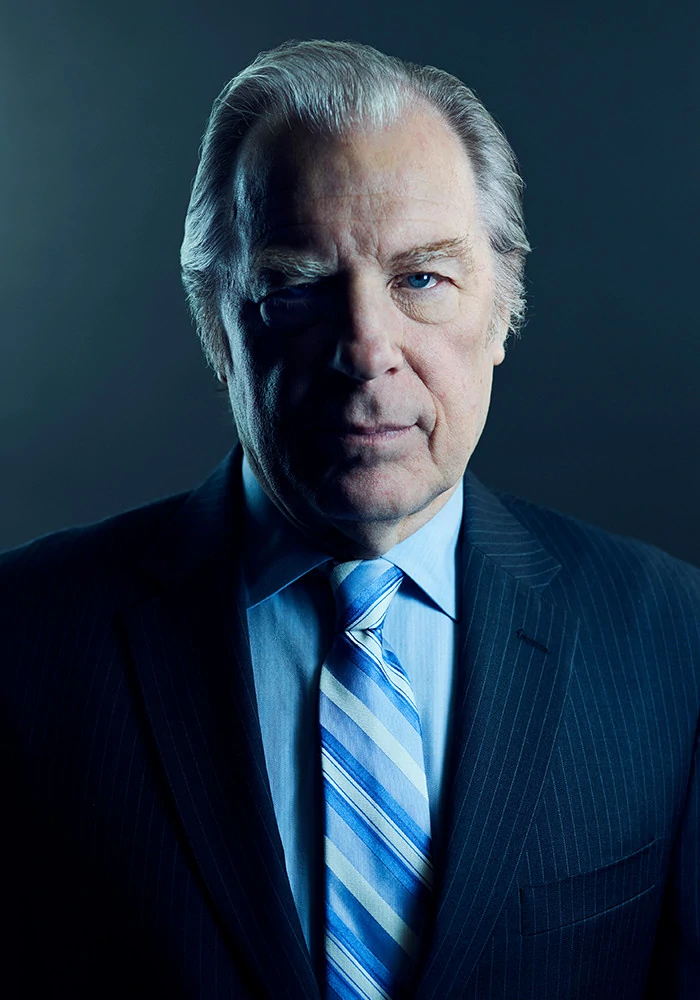
Through further flashbacks and exposition provided by Chuck himself, we find out his history was one mired with the burden of being the voice of the law. Chuck’s given name is Charles Lindbergh McGill Junior; he was named after his own father, and was a model student growing up. By the age of 14, he had graduated from his school, becoming the youngest valedictorian in Francis Xavier High’s history.
He went on to attend the University of Pennsylvania and eventually graduated magna cum laude from Georgetown University Law Center, making him one of the most academically-distinguished characters in the series, behind only Walter White who actually won a Nobel Prize for his chemistry research. But much like the protagonist of Vince Gilligan’s last TV production, Chuck too suffered from a critical personality flaw, and that was that he couldn’t take being emasculated at any step of the way.
If you’ll recall, Chuck was the one who bailed Jimmy out of his predicament in Chicago. Well, that should’ve also indicated to you that Chuck used to practice criminal law at one point in his career, and according to every account we here from every other lawyer in the series, he was excellent at what he did. In the CNBC mockumentary American Greed: James McGill, Bill Oakley- one of the PDs Jimmy works alongside in the earlier seasons of Better Call Saul- claims that Chuck McGill was like a god around these parts, because Chuck was actually an exceptional lawyer.
He fought- and won- the precedent-setting case of State v Gonzalez, and his legal reputation alone helped HHM reach the status it had by the time the series began. But Chuck also became so engrossed in his work that he ended up becoming a gatekeeper for the law, which as you know, isn’t exactly the best look for someone who is trying to come off as 100% professional.
And this became all too evident in his treatment of Jimmy, because turns out, Chuck had always resented his younger brother. He was a nationally-recognized lawyer who was name-partner in one of the biggest law firms of the South-West. He was dedicated to his parents and looked after them way more than Jimmy did to say the least. And he was the son who had always overachieved for parents who came from truly humble beginnings.
So when Jimmy got all the love and affection of his parents despite his criminal tendencies, it drove Chuck to resent his brother till the very end. It wasn’t always this way; in a flashback from Season 3 episode 10, we see that when they were children, Charles McGill Jr. actually loved his brother. He would read the Adventures of Mabel to him in an outdoor tent under lamplight in their youth, and that becomes one of the only positive memories that the brothers have of each other. But jealousy and lack of affection are poisonous, and Charles McGill’s soul was thoroughly venomized by the time he got his brother out of jail.
Chuck was the good son- he was the one who helped his father get his books in order when he was going to go bankrupt, he was the one who discovered that Jimmy had been embezzling money from their own store and alerted his parents to his malpractice, and he was the one who stayed by their mother’s side in her final moments while Jimmy was out trying to find something to eat.
But his father refused to believe Jimmy could have done something like this, the store closed down after he failed to recoup the losses and passed away (for which Chuck blames Jimmy) and at her deathbed, Mrs. McGill didn’t care about which son was wrong and which was right; she only wanted to see Jimmy. This was the final straw that broke Chuck, and his dislike for his brother became a permanent part of his personality.
He allowed Jimmy to continue working for HHM at the mail room because he had struck that deal with him before their mother’s passing. But after she left this Earth, he held back her final words from Jimmy because she asked for him instead of the son who was in front of her, and Jimmy would never learn his own mom’s last request. And even after taking Jimmy to Albuquerque and personally overseeing his transformation, Chuck could never really accept the fact that his brother now shared the same profession as him.
Because in Chuck’s mind, he is the golden standard of law- he claims on multiple occasions that the law is sacred and should not be manipulated- and what he says is usually the final word on said topic. He worked hard to get to his position, but Jimmy simply finished an online course to get his degree, which is a joke in Chuck’s mind because distance-learning wasn’t as normalised “back then” as it is today.
He simply cannot let go of the idea that his brother can be more than Slippin’ Jimmy, and it drives a wedge between them that is so huge that even Jimmy can palpably feel it whenever he goes to drop off Chuck’s supplies. In Season 1, when Jimmy brings Chuck the Sandpiper case, there is a moment where Chuck is genuinely proud of his brother. He later tells Kim that it was great to have Chuck not hate him for 10 minutes because that is what he wants; the approval of his brother. If Chuck had only shown Jimmy the empathy he frankly deserved from his elder brother, then things could’ve ended in a very different manner.
Instead, when he found out about Jimmy’s “law correspondence”, he sabotaged a career for him with HHM whilst feigning support, even going as far as vouching for Jimmy with the bar and attending his after-party as well. Though Chuck initially wants to leave, he is persuaded by Jimmy to perform a duet, which he turns into a solo, showing us just how deep his jealousy runs.
And the destruction of any hope for reconciliation between the brothers came right about when Chuck’s EHS symptoms started showing up. It got to the point he couldn’t even hide it from his then-wife Rebecca, and he enlisted Jimmy’s help in preparing the house for a romantic dinner. But when Rebecca ended up gelling with Jimmy way more than she ever had with Chuck, that’s when his EHS became severe enough to render him house-bound and Jimmy his semi-permanent man-servant.
When Howard Hamlin learns exactly how much work Jimmy puts into taking care of Chuck, he is amazed, but Chuck himself has never shown his own brother that level of appreciation. So after disparaging Jimmy for even thinking of putting his own name next to HHM’s because of his conman past, Chuck ends up winning the battle. Jimmy gives Sandpiper over to HHM, and seemingly agrees with his brother’s assessment of himself.
But when he drops the bomb that he has also delegated Chuck’s care to HHM, the latter’s expression turns from defiant victory to a terrible sense of dread, because he realises that this means he can no longer control Jimmy as he wants. So far, he had been able to deflect the truth to Howard, but now that he can’t anymore, he has a slight breakdown and rushes after his brother to keep him with himself.
But when he fails to do that, the war between the McGill Brothers begins in earnest, and one of the biggest reasons Chuck ends up gaining an upper hand through it is his “medical condition”. Let’s talk about that condition for a bit now, shall we?
Electromagnetic Hypersensitivity – How Chuck’s condition represents his hatred towards Jimmy and his control freak status
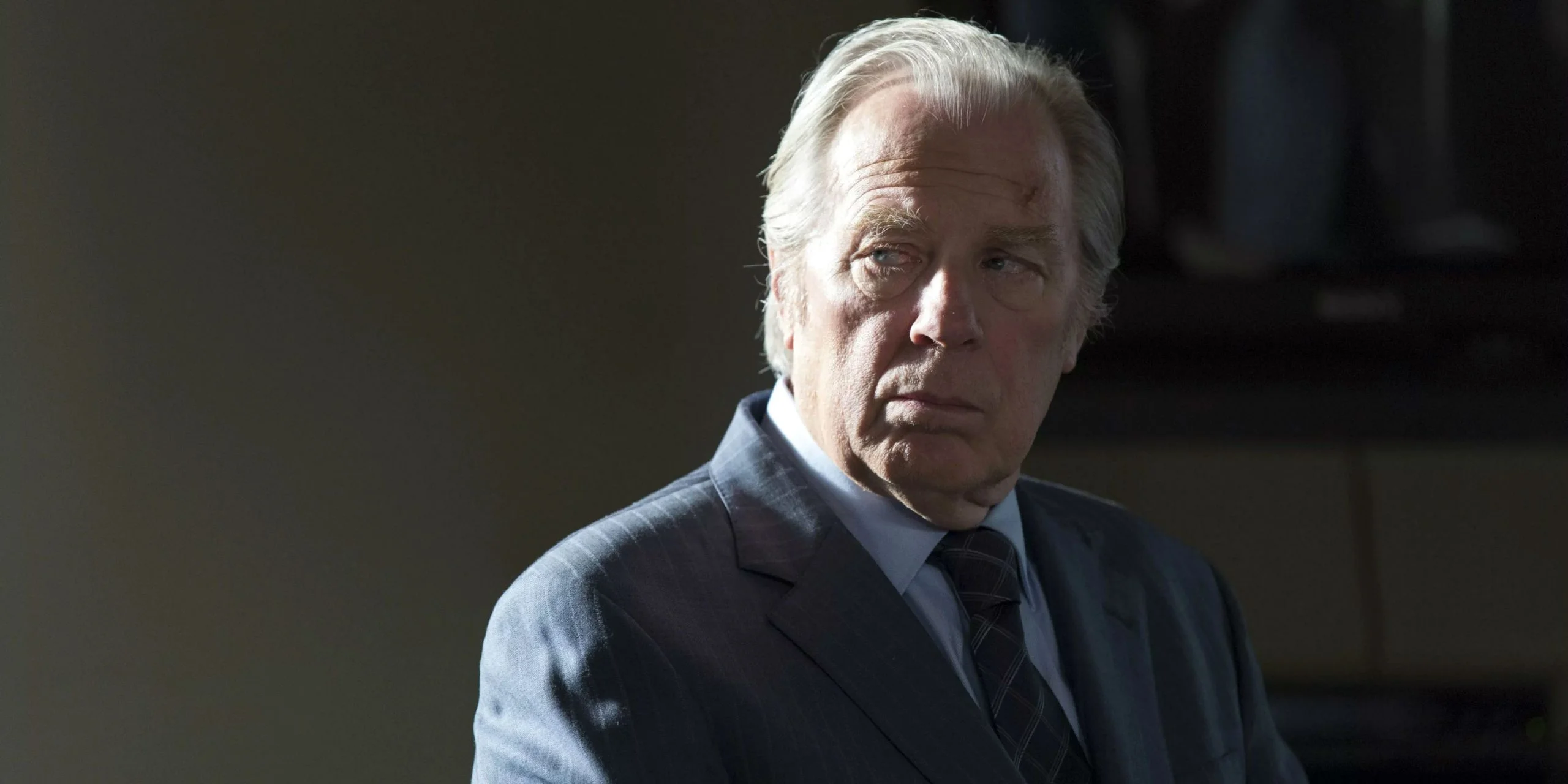
So, Electromagnetic Hypersensitivity is not a real thing; at least, not a confirmed real thing. It is what psychologists would call a “psychosomatic disorder”. What does that mean? In simple words, it’s a mental condition that manifests itself as a physical symptom. So for instance, if you are extremely stressed out, you might feel like your shoulders are getting heavier or your head is hurting way more than a regular headache.
That is a psychosomatic symptom, and experts consider EHS itself as a somatic condition, which means that it is purely psychological. There are no confirmed symptoms for the condition and the idea that electromagnetic waves can cause allergic reactions in such a small part of the global population is outlandish as it is. So you can understand that EHS is not exactly a real disease; it’s something that Chuck’s mind created in order to process the stress of losing his wife and that of managing his conman brother’s redemption arc.
His jealousy towards Jimmy and his incapability to keep Rebecca around crashed into this massive condition that led to Chuck literally ripping out every electronic appliance in his home and resorting to pre-electricity living conditions. There is a scene early on in Better Call Saul where Chuck ends up getting tased by some cops who think his home is a drug den because of all the pried-out electronics strewn across the place- this happens after Chuck discovers Jimmy conned his way into getting more clients by staging a publicity stunt-and he is taken to the emergency room.
There, his consulting doctor tells Jimmy that the EHS is in Chuck’s mind. To illustrate her point, she activates Chuck’s electronically-powered bed, and he has no response to it. Jimmy has probably known this for a while; he even looks dejected when the bed moving doesn’t elicit a response from Chuck, as if his worst fears were being confirmed. But he refuses the doctor’s suggestion of having Chuck institutionalized because he knows his brother and how he would react.
And besides, Chuck only ever had his brain in the first place- if Jimmy takes that away from him, what will he have left? So the EHS becomes a way of gauging just how Chuck copes with his own emotions; whenever he is under stress, the symptoms sky-rocket, but when he is productively occupied- like working on the Sandpiper case with Jimmy- his conditions practically vanish. On multiple occasions across Better Call Saul, Chuck has used electrical appliances when they either served his ends or were needed to prove his point.
It’s only when his emotions start going haywire that his skin starts itching like crazy and he needs a space blanket to comfort himself. The EHS is a large part of why we sympathized with Chuck when we first met him, but as the series continued, it became clear to us that it would also end up becoming his downfall. And that is exactly what happened when Chuck dialled up his vendetta with Jimmy to a 20.
McGill v McGill – The Brilliant Legal Mind v the Brilliant Illegal Mind ensues
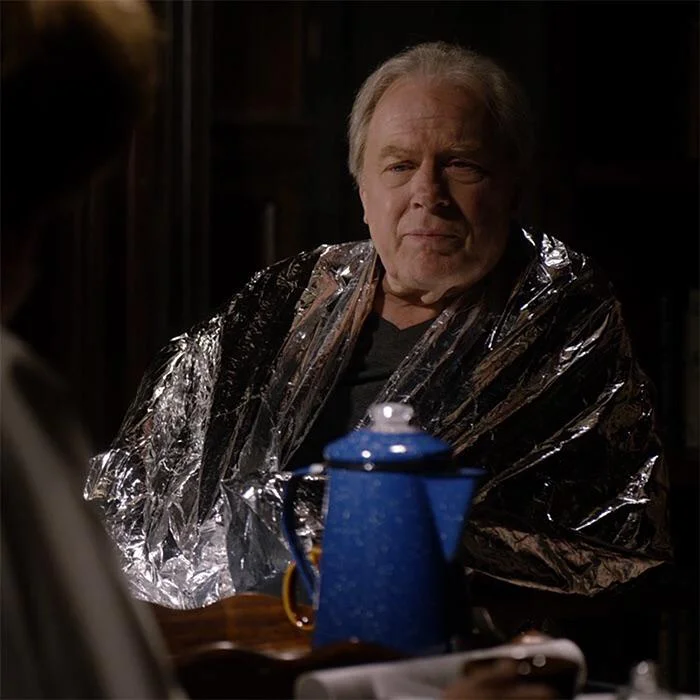
After Jimmy gives HHM the Sandpiper case, he is approached by Davis & Main- who are partnering with the firm to handle the class-action lawsuit- with a partner-track job. Though he initially rejects it, Jimmy ends up taking the job thanks to Kim, and Chuck is shocked to learn of this development. He questions Howard if he painted a full and honest picture to Cliff Main of Slippin’ Jimmy, and Howard says he did, but he also didn’t stand in the way of Jimmy getting hired which has obviously irked Chuck to the point he starts showing up to meetings where he previously wasn’t even interested in practicing law anymore.
Chuck questions Jimmy’s methods of procuring clients from Sandpiper, alleging solicitation, but Jimmy is able to salvage the meeting and protect his job. So Chuck takes an alternative route and starts involving himself with Kim’s career. He has her reinstated to her previous position after Howard demoted her to doc review- aka the corn fields- and tells her a story about their childhood hoping to sway her opinion of Jimmy and win her to his side. But he underestimates Kim’s loyalty to Jimmy, and this decision backfires on HHM.
Because the reason Chuck reinstated Kim was that she had gotten their firm Mesa Verde, a wealthy bank with expensive legal requirements that could really elevate HHM to national prominence; and when she started making moves to retain them for her solo practice, he actively sabotaged her reputation by subtly implying she wasn’t good enough for the job, which convinced the higher ups of Mesa Verde to side with HHM instead.
Chuck personally attended to the Mesa Verde filings and when Jimmy broke in and doctored them to get back at Chuck, he realised immediately what had happened upon being informed of his “mistake”. Because in his own mind, Chuck never makes “mistakes” like the one that ended up being revealed at the courthouse, and his instant reaction is Jimmy sabotaged me.
He is right, of course, but he could have just as easily also forgotten about the numbers. This mistake is enough for Mesa Verde to take their business to Kim, and Chuck, having realised what happened, devises a plan. After a failed visit to the copy store where Jimmy doctored the documents, Chuck ends up in the hospital again where he realises he had never called Jimmy himself, and yet he was the one who called the ambulance.
Though Ernesto covers for Jimmy because he can see just how fixated Chuck is in his vendetta, Charles McGill does not buy it and resolves to glean the truth out of Jimmy using his own tactics. He fakes having a complete mental breakdown by putting up space blankets all around his house and goads Jimmy into confessing about doctoring the files, knowing that his brother’s sentimentality will cause him to slip.
Then, he gets Howard in on the gambit and devises a master plan to get Jimmy disbarred from practicing law ever again; because ultimately, that is what he really wants. Chuck has Ernesto accidentally listen to Jimmy’s confession and then swears him to silence, knowing full well that Ernesto wouldn’t be able to keep it in. When Jimmy shows up at Chuck’s home in an irate state and stages a break-in, Chuck informs his own brother that he will be pressing charges and that he hopes Jimmy would learn from this incident.
But it’s clear to Jimmy that this war has been one-sided for way too long, and he coldly tells his brother that his EHS will be the reason he will die alone before parting ways with him. Chuck goes about the rest of his appearances enforcing his ethics and disdain for his brother’s nefarious ways to anyway willing to enter his home, but on the day that Jimmy’s hearing is held, Chuck realises that he actually was wrong all this time. Not about Jimmy, but about himself; and that is what causes the actual antagonist of Jimmy’s life to completely fall apart, never to be pieced together again.
The Chicanery That Broke Charles McGill
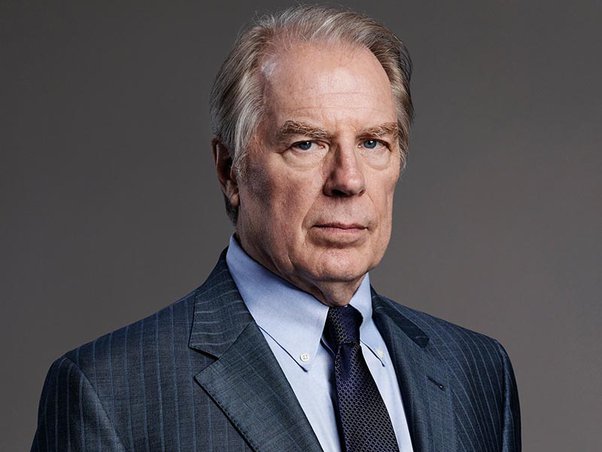
Right before Jimmy’s disbarment hearing, Chuck and Howard meet at the site of the deed, inspecting it to make sure it adheres to Chuck’s visiting protocols. Howard expresses concern over Chuck’s deeply-personal vendetta with Jimmy and wonder out loud if there can’t be another way, but Chuck simply tells him, “Let justice be done though the Heavens fall”- a Latin maxim that arose during the earliest days of the practice of law. Little did he know that the Heavens he was referring to here would end up being he himself.
During the hearing, Chuck maintains a confident demeanour and answers all of Jimmy’s questions with nonchalance and more than a twinge of smug intellectual superiority. He is confident that his under-handed tactics have worked in his favour; after all, he is Jimmy’s elder brother.
It only makes sense in Chuck’s mind that he would be better than Jimmy at even this. But Chuck ends up painting himself into a corner with his EHS explanation and from then on, things escalate rather quickly. Jimmy, using one of his old antics, manages to plant a fully-charged cell phone battery on Chuck thanks to Huell Babineux. He then presents an argument that is framed entirely around Chuck’s mental illness and provides the court with evidence supporting the same- pictures he had Mike take when he was posing as a handyman.
Jimmy then proceeded to have Chuck clearly establish that he felt no signs of EHS whilst delivering his testimony before revealing that Chuck had a battery in his breast-coat pocket the entire time. This rattles Chuck completely, and he launches an angry tirade in the courtroom which exposes not only his true agenda, but the extent of his mental illness. After denouncing Jimmy’s chicanery, Chuck looks to the presiders of the hearing with a desperate plea to remove his brother from the bar association, but he’s met with stunned eyes from all over the room.
In one fell swoop, Jimmy not only managed to avoid getting disbarred completely, he also exposed Chuck for the control scumbag he has always been. Ashamed of his scheme falling through, Chuck then tries to muscle HHM into keeping him on by sending them a lawsuit but Howard Hamlin forces him out of the firm by buying out his share, making Chuck a complete failure both professionally and personally.
Chuck goes to a therapist after this and laments that if his EHS is truly a mental condition, then what has he done, but it’s too late for him to try to fix anything. When Jimmy shows up to try to make amends with Chuck, he is shocked to find his brother living in the midst of electricity. Jimmy apologizes but Chuck cuts him short and asks him to save the pity act; he tells Jimmy he can’t help himself from hurting others, and he even says that Jimmy never really mattered all that much to him, which takes away any hope of redemption or reconciliation for the McGill brothers.
Chuck’s final moments are spent in complete madness, as he tears his home’s walls down looking for an electrical source that has kept his meter running, and when he fails, he just kicks his gas lamps over and commits suicide by self-immolation.
And thus, Chuck McGill’s own chicanery got him in the end. Had he left his personal vendetta with Jimmy to one side and truly worked with his brother to make him a better person, he probably would be alive today. Instead, he is going to be remembered for the contributions he made to the legal community alone.
Chuck McGill went from a respected lawyer to a vengeance-obsessed shell of a man, and his character is perhaps the best portrayal of what relying purely on your intellect for your existence can do to your life. And, as if the psychology lessons Vince & Co. gave us through him weren’t enough, nearly everything he says and does in the show are obscure intellectual references that mere mortals aren’t going to be able to comprehend. Still, we gave it a crack, and we think you’ll like what we found.
Real-life inspirations behind Chuck McGill’s character
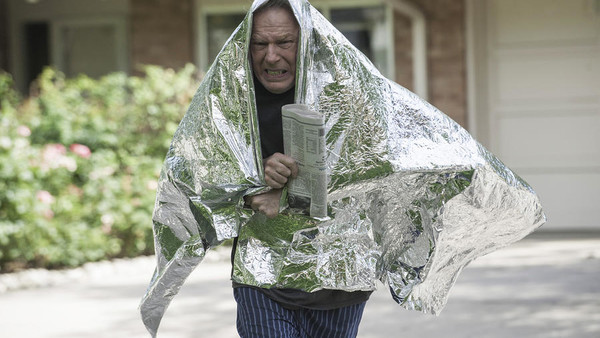
Let’s start with his name. Charles Lindbergh McGill Junior shared his first and middle name with the famed pilot Charles Lindbergh, whose exploits in an aircraft revolutionized commercial aviation at the start of the 20th century. Chuck’s naming directly follows the pattern of naming that the Lindbergh family adopted, as he is named after his own father, just like the real-life Charles Lindbergh was.
And, to be fair to the man, he did live up to his namesake’s legacy, carving out a sizeable reputation based on his own exploits as a lawyer. But it would be more accurate to call Chuck a parallel to Charles Lindbergh’s father, solely because both men served as lawyers at some point in their lives.
Charles Lindbergh Sr. was in fact one of the key federal administrators of his day, with a background in law and politics, and was at one time even touted for a senate run. So you can see how despite being named for the commercial aviator, he ended up mirroring the career of Lindbergh’s father. Now that we have the name out of the way, let’s talk about where Charles grew up.
Cicero, Illinois will seem like any other Chicagoan city to you at first glance, especially if Better Call Saul is the first place you heard of it. But the place actually has legal history dripping from its name itself. Cicero was one of the greatest Roman statesmen and lawyers that the ancient Roman Republic knew. His actions as a lawyer not only constitute what can be considered to be the first pieces of legal literature, but they effectively helped shape world history.
The First Triumvirate, Caesar’s rise to power, his eventual downfall and the wrath of Mark Antony- Cicero lived and argued through them all. In death, he is remembered as one of the world’s first and arguably most-significant lawyers- ever- which makes it even more ironic that Jimmy came out of a city named after Cicero, but not Chuck. In fact, it is possible that the discovery of his city’s namesake is what spurred him into becoming a lawyer, because we know that Chuck is nothing if not a history buff.
And history also held the answer to Chuck’s fate, because just like the author of The Adventures of Mabel- Harry Thurston Peck- Chuck, too, commits suicide. One of his more obscure classical references comes when he calls Jimmy Svengali, which, for anyone who knows, should illustrate just how lowly a view he has of his own brother. A Svengali is a person who mesmerizes or convinces another person to do their evil bidding.
He originated as a character in George du Maurier’s 1894 novel Trilby, but his name has since gone on to become a universal symbol for the phrase “bad influence”. If you actually read the story of Trilby, you’ll understand that what Chuck says here isn’t just a reference to a century-old storybook villain; Svengali was created to appear as the nadir of evil in all facets of the word, and by comparing his own brother to such a person, we can now understand that there was no hope for reconciliation ever.
And the last real-life inspiration for Chuck that we would like to discuss with you is Clarence Darrow. Now, legal aspirants who are watching this video- and there are only 2 of you- know who this man is already. But for the rest of you, we’ll just introduce Darrow as the godfather of lawyers in the US. During his time as an active lawyer, he fought several high-profile cases which were often dubbed as “trials of the century” by the media and included Darrow making some rather stretched-out arguments in defence of his clients.
Famously, he was able to get Leopold and Loeb’s death sentence reduced to 2 life sentences, a case we referenced in our Howard Hamlin origins video which you should also watch. But the thing is, Darrow is heavyweight in legal history; you could even call him the Hulk Hogan of the Law.
And in American Greed: James McGill, Bill Oakley directly compares Chuck to Darrow, which shows just how respected he remained in the eyes of the mainstream media. But unlike Darrow, we know everything about Charles McGill, and we are not sure if he deserves the pedestal people put him on. In fact, Howard Hamlin sums it up best for us; when he meets a new intern at the HHM head office, Howard shows him a trick for opening soda cans that Chuck taught him.
He calls Chuck the best legal mind he ever knew to which the intern replies that he wants someone to talk about him that way; Howard simply tells him that maybe there are more important things in life, indicating that while he does not dispute Chuck’s genius, no amount of brains could undo the damage he did in his last few days. Chuck McGill’s story is a real-life warning for us, the viewer: don’t let your success turn into hubris and deal with your personal issues as transparently as possible. You never know; someday your own brother might try to ruin your entire life.
Marvelous Verdict
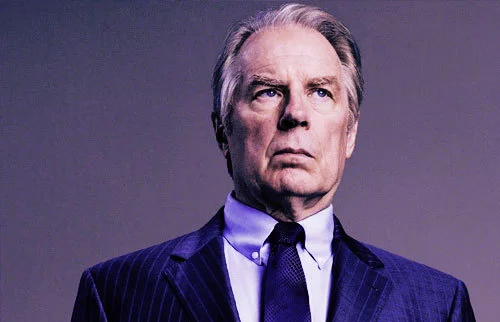
Brilliant, vulnerable, articulate, malevolent, stoic, evil, there are a lot of adjectives we can use to describe Charles McGill; but the ultimate term we are going to use here is he was a deeply flawed human. Yes, Chuck had a multitude of issues for which he should have sought help ASAP; but he was also the only person who accurately predicted that Jimmy acquiring a law degree would end up making a mockery out of the law, even though he himself pushed him there.
He is a terrifying concoction of complexities; strong yet fragile, righteous yet underhanded, exceptional yet exceptionally plain, we could keep going for days. But the main thing that he is, is the catalyst for Jimmy’s transition into embracing Saul Goodman with open arms. Where he previous only used the identity to scam people in Cicero, after everything Chuck did to him, Jimmy made Saul his life; and the only person who could have stopped that from happening was good old Charles Lindbergh McGill Junior. It’s just a shame that his pride, jealousy and ego came before his own brother; so much pain could have been avoided otherwise.
